Beyond the EU Regulatory State
ECPR Press
ECPR Press is an imprint of the European Consortium for Political Research in partnership with Rowman & Littlefield International. It publishes original research from leading political scientists and the best among early career researchers in the discipline. Its scope extends to all fields of political science, international relations and political thought, without restriction in either approach or regional focus. It is also open to interdisciplinary work with a predominant political dimension.
ECPR Press Editors
Editors
Ian OFlynn is Senior Lecturer in Political Theory at Newcastle University, UK.
Laura Sudulich is Senior Lecturer in Politics and International Relations at the University of Kent, UK. She is also affiliated to Cevipol (Centre dtude de la vie Politique) at the Universit libre de Bruxelles, Belgium.
Associate Editors
Andrew Glencross is Senior Lecturer in the Department of Politics and International Relations at Aston University, UK.
Liam Weeks is Lecturer in the Department of Government and Politics, University College Cork, Ireland, and Honorary Senior Research Fellow, Department of Politics and International Relations, Macquarie University, Australia.
Published by Rowman & Littlefield International, Ltd.
6 Tinworth Street, London, SE11 5AL
www.rowmaninternational.com
In partnership with the European Consortium for Political Research, Harbour House, 6-8 Hythe Quay, Colchester, CO2 8JF, United Kingdom
Rowman & Littlefield International, Ltd., is an affiliate of Rowman & Littlefield
4501 Forbes Boulevard, Suite 200, Lanham, Maryland 20706, USA
With additional offices in Boulder, New York, Toronto (Canada), and Plymouth (UK)
www.rowman.com
Copyright Andrea Prontera, 2019
All rights reserved. No part of this book may be reproduced in any form or by any electronic or mechanical means, including information storage and retrieval systems, without written permission from the publisher, except by a reviewer who may quote passages in a review.
British Library Cataloguing in Publication Information Available
A catalogue record for this book is available from the British Library
ISBN: HB 978-1-78552-306-9
PB 978-1-78552-310-6
Library of Congress Cataloging-in-Publication Data Available
ISBN: 978-1-78552-306-9 (cloth : alk. paper)
ISBN: 978-1-78552-310-6 (pbk. : alk. paper)
ISBN: 978-1-78552-307-6 (electronic)

The paper used in this publication meets the minimum requirements of American National Standard for Information SciencesPermanence of Paper for Printed Library Materials, ANSI/NISO Z39.48-1992.
The urge to write this book grew out of a profound discontent with the existing works on EU energy security and international affairs. Because of the EUs growing dependence on Russian natural gas, energy security has become a hot discussion topic in academia and in policy circles in Brussels, Washington and many European capitals. However, most of the books on the subject use a very descriptive and/or normative approach. In addition, the few works that try to theorise EU energy security rarely depart from the standard marketliberal/geopoliticalrealism divides, or they conform to mainstream conceptualisations of the EU as an international actor: the EU as a regulatory state/Regulatory Power Europe and Market Power Europe. Against this challenging background, I felt the need to work on the theoretical and empirical levels to help further the debate on the subject and use the critical case of EU energy security to say something original about European integration and the EUs role in international affairs.
It is worth noting that the idea of challenging the regulatory state model has recently emerged in EU studies, especially with regards to the EUs foreign policy and economic and monetary governance. My book resonates with this new body of literature. It helps challenge the regulatory state hypothesis by introducing the model of the catalytic state and the concept of Catalytic Power Europe to EU studies.
I have been working on this concept of the catalytic state and its possible application to the realm of energy security in the EU for five years now. The bulk of this work was incorporated in a book that was published in 2017; the book developed an original approach to EU energy security based on International Political Economy and the notion of the catalytic state. However, in that book, this theoretical and conceptual framework was mainly applied to the study of the transformations of energy governance in EU member states. It examined EU member states as catalytic states, plural. It was only at the end of that book which I suggested that, in light of the innovations introduced at the EU level after 2014 to 2015, the model of the catalytic state might be also applied to the EU as a whole. In other words, I suggested that the EU as an international structure of governance, or an international state, could be described as a catalytic state, singular. This idea is not surprising nor particularly original. The concept of forms of state (Regulatory State, Westphalian State, Interventionist State, etc.) has traditionally been applied to EU member states at the national level and to the EU as a whole to assess the roles and strategies of EU governmental agents. For example, there are many studies on EU member states as regulatory states (plural) as well as studies on the EU as a regulatory state (singular). I first developed this idea further in a paper that I presented at the 2017 UACES conference in Krakow in a panel organised by the Collaborative Research Networks on European Energy Policy. I was surprised that so many of my colleagues were, like me, disaffected with the stagnation of the debate on EU energy security and the EUs international role. I hence decided to expand the paper into a book.
Over the next two years, the original idea developed thanks to the help of many individuals and institutions who have generously supported my efforts with time, resources and advice. The colleagues, staff and friends at the Department of Political Science, International Relations and Communications at the University of Macerata have (as usual) provided the best environment possible for this work. I would like to offer special thanks to Luca Lanzalaco for his constant support throughout my entire academic career. I also want to thank Marco Di Giulio for discussing many of the theoretical arguments presented in the book with me.
This book has also greatly benefitted from a research period I spent, in 2018, as a Visiting Fellow doing research on EURussia energy relations at the Aleksanteri Institute (University of Helsinki), where I enjoyed incredible support from colleagues, visiting fellows and staff. I am particularly grateful to Daria Gritsenko and Veli-Pekka Tynkkynen. I am also grateful to Marco Siddi, from the Finnish Institute of International Affairs, for discussing with me several issues related to EURussia (energy) relations.
Any errors or misjudgements that are still present in this final text, notwithstanding all this support and advice, are my sole responsibility.
| ACER | Agency for the Cooperation of Energy Regulators |


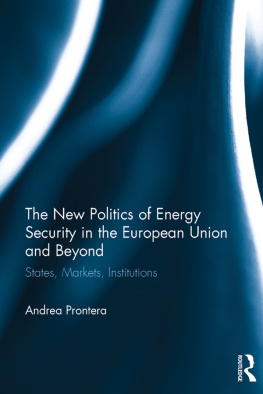

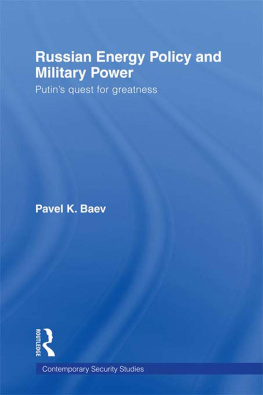

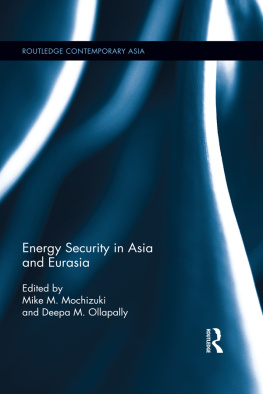
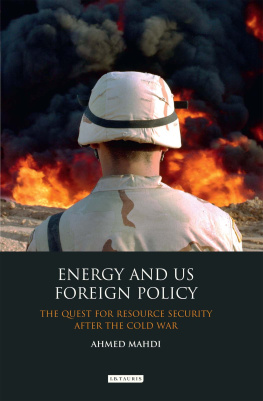
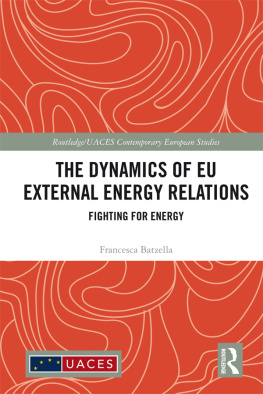
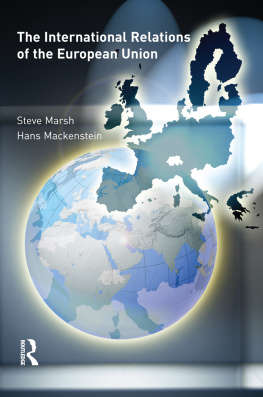
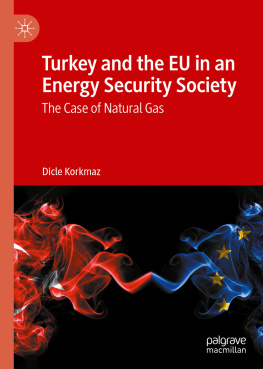
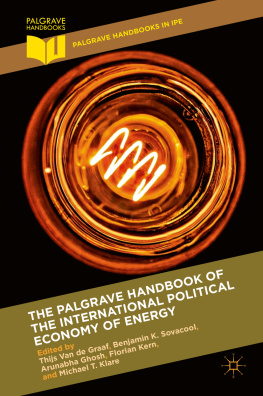
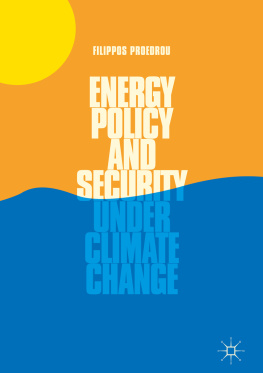
 The paper used in this publication meets the minimum requirements of American National Standard for Information SciencesPermanence of Paper for Printed Library Materials, ANSI/NISO Z39.48-1992.
The paper used in this publication meets the minimum requirements of American National Standard for Information SciencesPermanence of Paper for Printed Library Materials, ANSI/NISO Z39.48-1992.